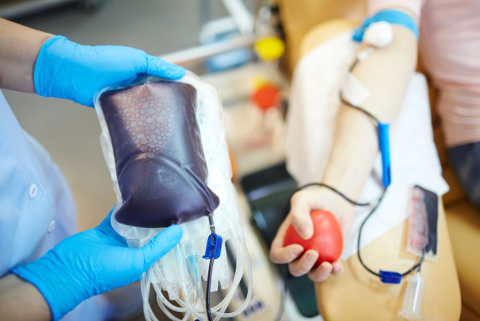CAR-T therapy is based on genetically modified T cells that, through modification, have gained the ability to recognize a feature of a cancer cell and are thus capable of destroying it. It is described as a breakthrough in the fight against cancer.
The Chair and Department of Hematology, Transplantation and Internal Medicine UCC MUW is a reference center, and almost every day it receives requests to treat more patients. The therapy is extremely expensive, so until now it has only been possible in certain cases, within the framework of a drug program. And now, thanks to funding from the Medical Research Agency, our specialists can help more patients.
Innovative study on the use of CAR-T in adults with acute lymphoblastic leukemia
In 2020, our university received more than 17 million in funding from the Medical Research Agency for a project entitled "Application of CAR-T antiCD19 lymphocytes in the treatment of adult patients with relapsed and refractory acute lymphoblastic leukemia (MERMAID1)." This made it possible to extend the therapy to patients who, due to their age and other limitations, had no chance to receive reimbursed treatment from the National Health Fund.
On January 12, 2024, the first patient was enrolled in this innovative clinical trial. Prof. Grzegorz Basak, Head of the Chair and Department of Hematology, Transplantation and Internal Medicine UCC MUW explains: - The patient is a 40-year-old man with acute lymphoblastic leukemia who suffered an early relapse. He had previously been successfully treated with targeted chemotherapy. To cure the leukemia, a hematopoietic cell transplant would be necessary, which cannot be performed due to a shortage of donors. The alternative is CAR-T therapy, for which the patient was qualified.
Specialists assume that the patient has a real chance of curing the disease. And although it is difficult to estimate unequivocally, one can speak of a range of 30-50%. - We observe favorable effects of these therapies, but we would like to be able to treat even more effectively - stresses Prof. Basak and adds: - For this purpose, it is necessary to conduct clinical trials, including non-commercial ones.
In the MERMAID1 clinical trial, 20 patients will be treated, both at UCC MUW and the project partners centers - the National Cancer Institute, Gliwice Branch, and the Institute of Hematology and Transfusiology.
Read more about CAR-T lymphocyte therapy in an interview with Prof. Gregory Basak
